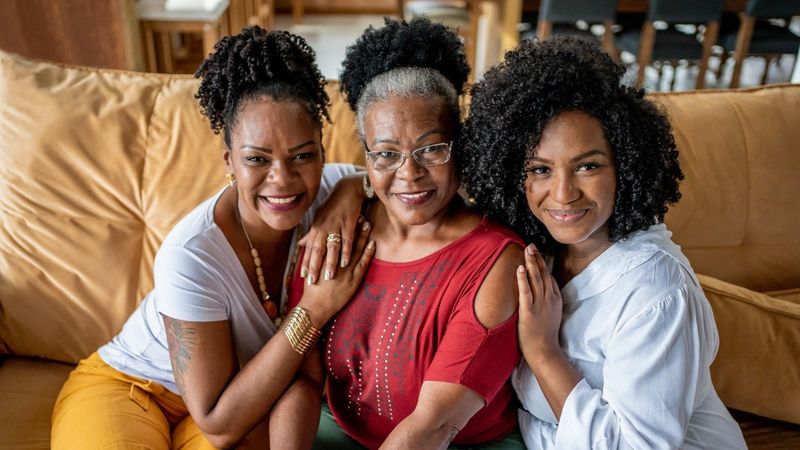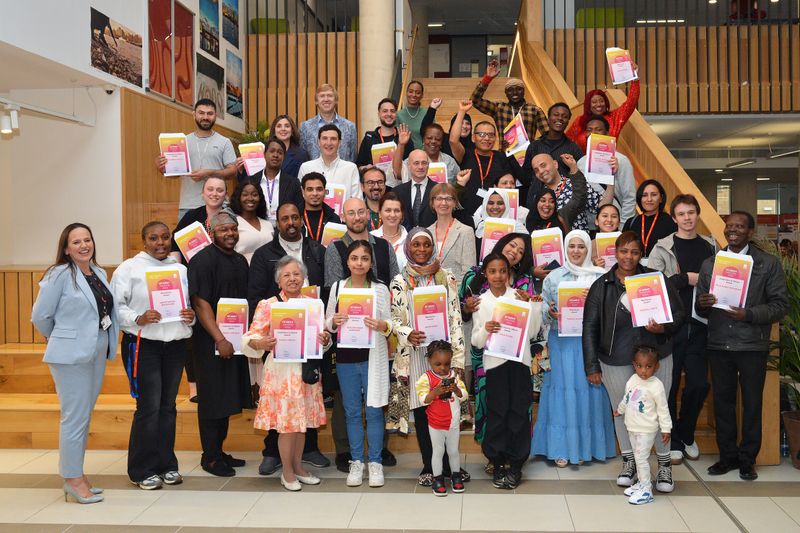Building and maintaining a strong relationship with your adult children requires consistent effort and understanding. By adopting certain habits, you can transform your connection into a more meaningful and enriching experience. Here are twelve habits that can help enhance your relationship with your adult kids.
1. Active Listening

Listening is an art that strengthens bonds. Picture this: your adult child sharing their latest life adventure. As you actively listen, without preparing your response, you validate their feelings and thoughts.
Active listening requires patience and presence. It’s about hearing what isn’t said, understanding emotions, and acknowledging them with empathy. This silent act speaks volumes, creating a safe space for open dialogue.
Remember, it’s not merely about hearing words; it’s about connecting soulfully. By being present, you nurture trust, paving the way for deeper conversations.
2. Sharing Stories

Stories are bridges between generations. Imagine sharing a childhood memory—your adult child leans in, captivated by your tale. Such exchanges kindle connections.
Unearthing family stories adds layers to your relationship. It offers insights into past experiences that shaped values and perspectives. These narratives become touchpoints for empathy and understanding.
By sharing stories, you’re not just recounting events; you’re offering glimpses into your world. This exchange nurtures a shared history, making your bond richer and more meaningful.
3. Respecting Boundaries

Boundaries define respect. Visualize your adult child valuing their personal space, and you honoring it. This gesture reflects understanding and respect for their autonomy.
Respecting boundaries involves recognizing their independence, allowing them to navigate life on their terms. It’s about giving space when needed and being available when sought.
This mutual respect fosters trust and confidence. By acknowledging their individuality, you reinforce their sense of self-worth, creating a relationship rooted in respect and understanding.
4. Offering Unconditional Support

Support is a silent strength. Envision being the unwavering pillar your adult child leans on during challenging times. This steadfast presence assures them of your unconditional backing.
Supporting without judgment enhances trust. It’s about showing up, no questions asked, ready to uplift and encourage. Your belief in their potential empowers them.
This act of unconditional support conveys love in its purest form. It deepens your bond, reassuring them of your unwavering presence through life’s ups and downs.
5. Encouraging Independence

Independence is a gift. Imagine watching your adult child take flight, carving out their own path. Your encouragement fuels their journey towards self-sufficiency.
By supporting their quest for independence, you’re gifting them confidence. It’s about celebrating their milestones, no matter how small.
This encouragement doesn’t mean letting go; it’s about standing by with pride. It teaches resilience and self-reliance, fostering a relationship built on mutual respect and admiration.
6. Practicing Gratitude

Gratitude enriches life. Picture expressing heartfelt thanks to your adult child for their simple gestures. This practice nurtures positivity and appreciation.
Cultivating gratitude involves recognizing and valuing each other’s contributions. It’s about acknowledging the little things that often go unnoticed.
This habit strengthens your bond, creating a nurturing environment filled with love and appreciation. Gratitude transforms ordinary moments into cherished memories.
7. Having Regular Check-ins

Check-ins are lifelines. Visualize setting aside time for regular catch-ups with your adult child. These moments become anchors in your relationship.
Regular check-ins foster connection and understanding. They offer windows into each other’s worlds, ensuring you stay connected despite the distance.
These interactions, be it a call or a coffee, are vital. They show your commitment to maintaining a strong, enduring bond.
8. Engaging in Mutual Hobbies

Hobbies are shared journeys. Think of hiking trails or cooking experiments with your adult child. These shared activities become avenues for bonding.
Engaging in mutual hobbies offers a platform for shared experiences. It’s about discovering new interests together.
These moments foster teamwork and collaboration, enhancing your relationship. They offer a chance to reconnect and create lasting memories.
9. Being Open to Change

Change is growth. Picture adapting to new technology with your adult child’s guidance. Embracing change reflects willingness to grow together.
Being open to change shows flexibility and adaptability. It’s about learning new things and stepping out of comfort zones.
This openness strengthens your bond, demonstrating your commitment to evolving alongside them. It fosters a dynamic, evolving relationship.
10. Celebrating Achievements

Achievements are milestones. Picture toasting to your adult child’s success during a family dinner. Celebrating their achievements reinforces pride and encouragement.
Recognizing their efforts and accomplishments shows your support and belief in their capabilities.
These celebrations, big or small, strengthen your bond. They signify your involvement and appreciation, nurturing a relationship grounded in love and pride.
11. Encouraging Open Communication

Communication is the heart of relationships. Envision a heart-to-heart conversation with your adult child on a park bench. This openness fosters trust and understanding.
Open communication involves honesty and vulnerability. It’s about sharing thoughts and feelings without fear of judgment.
This habit nurtures a safe, supportive environment. It encourages openness and mutual respect, fortifying your relationship.

